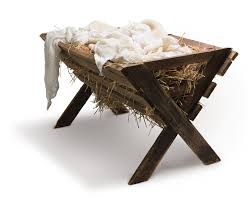
记忆方法
1. m + anger => 马很生气,因为没有跟它的马槽、食槽里放食物。
因为马槽里没有食物,他很饿。
因为马槽里没有食物,他很饿。
中文词源
manger 马槽,饲料槽
来自古法语mangier,吃,来自拉丁语manducare,吃,咀嚼,来自拉丁语mandere,咀嚼,词源同mandible,mouth.引申词义马槽,牛槽,饲料槽。
英语词源
- manger
-
manger: [14] Etymologically, a manger is an ‘eater’, or ‘feeding place’. It comes from Old French mangeoire, a descendant of Vulgar Latin *mandūcātōria. This was derived from Latin mandūcāre ‘chew’, which in modern French has become manger ‘eat’; the use of this as a noun, meaning ‘edible substance’, forms the ultimate basis of English blancmange, literally ‘white food’. From a parallel source comes the name of the skin disease mange [14], an allusion to its ‘eating’ or irritating the skin; mangy is a 16thcentury derivative.
=> blancmange, mange - manger (n.)
- early 14c., from Old French mangeoire "crib, manger," from mangier "to eat" (see mange) + -oire, common suffix for implements and receptacles.
权威例句
- 1. The horses were crunching their straw at their manger.
- 这些马在嘎吱嘎吱地吃槽里的草.
- 2. The horse is tied up to the manger.
- 马被拴在马槽上.
- 3. " But there's a way out: what is vulgarly known as'jumping the manger.'
- -- “ 不过,有个办法: 粗话所谓 ‘ 跳槽 ’.
- 4. The moment my back is turned everything goes to rack and manger.
- 就在我转身的一瞬间,一切都陷入毁灭之境.
- 5. What? That kid is the manger's son? How cute!
- 什么? 那是经理的儿子? 真可爱!
